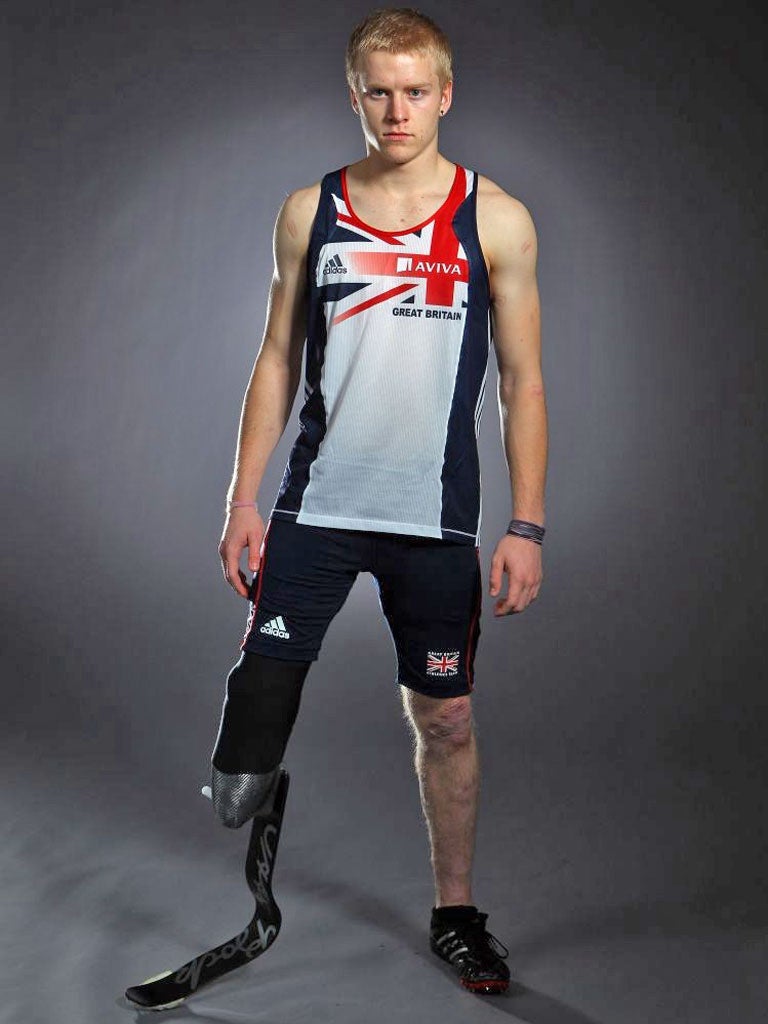Robin Scott-Elliot: Who is the fastest man on blades? It's a question to relish
The Way I See It

Your support helps us to tell the story
From reproductive rights to climate change to Big Tech, The Independent is on the ground when the story is developing. Whether it's investigating the financials of Elon Musk's pro-Trump PAC or producing our latest documentary, 'The A Word', which shines a light on the American women fighting for reproductive rights, we know how important it is to parse out the facts from the messaging.
At such a critical moment in US history, we need reporters on the ground. Your donation allows us to keep sending journalists to speak to both sides of the story.
The Independent is trusted by Americans across the entire political spectrum. And unlike many other quality news outlets, we choose not to lock Americans out of our reporting and analysis with paywalls. We believe quality journalism should be available to everyone, paid for by those who can afford it.
Your support makes all the difference.There is nothing in sport to match the Olympic final of the men's 100m. It is the event, the very essence of sporting competition shoe-horned into less than 10 furious seconds – who can run the quickest? Who is the fastest man on the planet? It is a simple question and to answer it you need nothing but a pair of legs.
Which, of course, is what Oscar Pistorius, Jerome Singleton, Jonnie Peacock, Blake Leeper and Arnu Fourie do not have. Between them the five men, two Americans, two South Africans and a Briton, can muster three legs. The missing limbs, all seven of them, have been replaced by blades, two for Pistorius and Leeper, one each for Peacock, Singleton and Fourie. What they have is different, but what they are is no different from the men who lined up at the top end of the track in London's Olympic Stadium 22 nights ago.
That was the fastest field ever assembled for sport's headline event. It was a race, it was an occasion, it was drama and it was exhilarating to be in the stadium, pulse-quickening, grinning excitedly at Chinese and German colleagues – the excitement of the moment requiring no translation.
When next week Pistorius and the rest come to their marks at the top of the same track there may not be quite the same frisson of excitement as was stirred by Bolt and Co among another audience of 80,000 people but this will be a race to relish, the quickest field ever gathered at a Paralympic Games.
The final of the T43/44 class 100m to determine the fastest man with no legs.
That is not a term any of them would care to recognise. "Recognise the ability, not the disability," is how Singleton, the American who is the current world champion, prefers to put it.
The first time I met Pistorius he told me a story of his time at boarding school in South Africa, where one night his friends hid his prosthetic limbs, poured lighter fuel on his metal bedside locker and set fire to it. Pistorius awoke to yells of "fire! fire!", tumbled out of bed and was scrabbling around on the floor desperately looking for his legs as his friends raced out of the dormitory desperately trying not to laugh. They did not, I suggested, sound much like friends. Pistorius's response was that sure, it was a brutal joke, but what it meant was that they were treating him like they would each other; they saw him not as a boy with missing legs but as an equal, whom they tackled as hard on the rugby field as anybody else.
Pistorius has been accepted in his sport, despite initial attempts to bar him by the authorities, and is a hugely popular figure too – witness Kirani James, the brilliant young Grenadian who won the Olympic 400m, swapping name tags with him after the semi-final – but sport, as well as being about pure athletic achievement, is what it is because of the scripts, storylines and narratives that surround it. The 100m final begins with a display of strutting and preening to make a peacock blush; it's part of the drama. The Premier League is the world's best sporting soap opera; it attracts superlatives and spite, produces brilliance and bile and it is never safe to miss an episode.
These five men have scripted a compelling drama of their own which possesses the potential to match anything we have seen in this most memorable of sporting summers (although yet more rain on final day could be ruinous). First, and most obvious, is how they look on the track. Here come the men in blades. Channel 4 has branded Paralympians "the Superhumans" and to watch Pistorius run it is difficult to reach any other conclusion. Look at your own legs, imagine the physical act of how you run and look at what he is doing.
Pistorius is the favourite to retain the 100m title he collected in Beijing but is no longer seen as unbeatable. Singleton inflicted a first defeat in seven years at the 2011 World Championships, while Fourie got the better of his compatriot in the South African trials. Leeper equalled Pistorius's world record mark of 10.91sec at a meeting in Canada in July, but only days earlier Peacock, a 19-year-old from Cambridge, had broken it. Watched by Leeper and Singleton, Peacock ran 10.85sec as a guest at the US trials.
It is an event that is getting quicker again – Pistorius's mark stood for five years – and, unlike the Olympic 100m, it is an event that is wide open. It may well require a world record to win it. It is sport to savour, sport to quicken the pulse again – a universal language, no translation needed.
Join our commenting forum
Join thought-provoking conversations, follow other Independent readers and see their replies
Comments